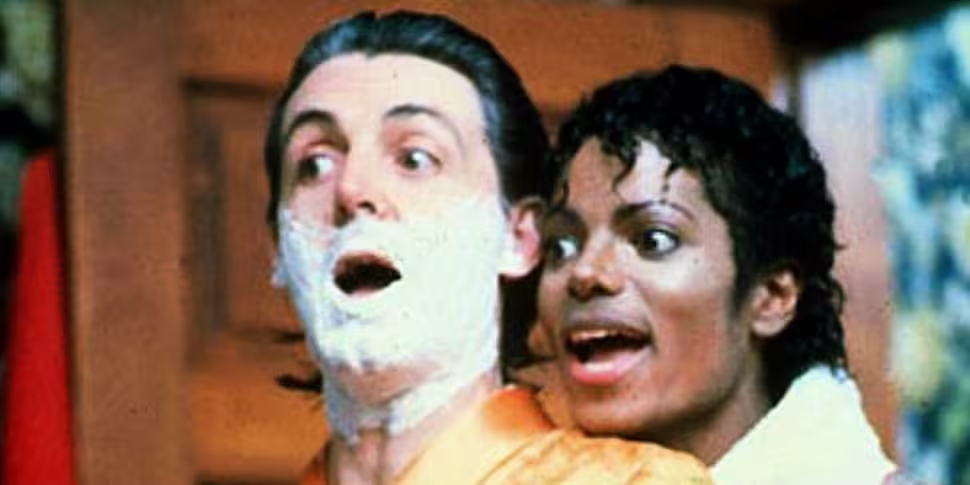According to the story, it all happened over dinner. The year was 1982 and Michael Jackson, the prince of pop, was seated at a kitchen table in a leafy suburb of London. His hosts, Paul and Linda McCartney. Jackson had made his way across the pond to record a song (‘Say, Say, Say’) with the former Beatle, and was staying with the musician and his photographer wife while working on the project.
Around the time that plates had been cleared and coffee brewed, McCartney, half of the greatest song-writing duo ever to emerge in the rock-and-roll scene, whipped out a thick ledger, filled with all of the music publishing rights he’d carefully acquired over the previous decade. None of it related to The Beatles catalogue, which he and Lennon had lost years earlier. But leafing thought the list, McCartney thrilled his young guest with tales of how he’d cleared a cool $40m in the last year alone, just from owning the rights to the songs.
Every time they were played, he explained to Jackson, every time they were recorded, Paul made money.
Owning the rights to a musical catalogue surely was a shrewd investment, and Jackson was suitably impressed by the concept. McCartney, of course, was less than impressed a few years later when his dinner guest bought out the entire Beatles’ back catalogue for $47.5m, destroying their musical collaboration and ending their friendship. It’s safe to assume that Jackson was never invited to dinner again.
Just how did The Beatles lose the rights to their music in the first place?
In 1963, on the brink of conquering the world with their bowl-cuts and Beatlemania, the fab four’s manager Brian Epstein convinced John and Paul to avoid having to pay higher taxes and to protect their music rights by creating a company. One with an industry name at the forefront, who could help get their records played on the right stations at the right time.
Weeks later, the duo had formed Northern Songs, naively signing away their intellectual property in a deal with Dick James and Charles Silver; the split saw Lennon and McCartney own 40% of the rights, Epstein getting 10%, with the industry veterans maintaining the lion’s share of 50%. Years later, McCartney would reveal that not only had neither he nor John read the contract, they never even met Charles Silver before giving him the controlling stake of their catalogue.
Within two years, The Beatles had become huge, making millionaires of everyone involved in Northern Songs. But to avoid a hefty tax bill, James and Silver made the decision to float the company on the London Stock Exchange, cutting Lennon and McCartney’s stake to 15% each, and maintaining almost 40% of the company themselves.
After a lethal drug overdose cost Brian Epstein his life in 1967, the two Beatles battled for more control of their musical legacy – unsuccessfully. Dick James and Charles Silver were seemingly so offended by McCartney and Lennon’s attempts to wrangle their way out of their contract, the pair sold the entire stake to a company named ATV Music Publishing, without bothering to notify John or Paul.
ATV had acquired the rights to nearly 90 of the Beatles songs, as well as a contractual obligation for six more original pieces every year until 1973. After another failed coup by the songwriters, the two Beatles, in exasperation, sold their own minority stake to ATV, paying the price for their creative freedom.
For the following 12 years, as the world lost Lennon, nothing changed for ATV. In 1981 the company was acquired by an Australian entrepreneur by the name of Robert Holmes à Court, despite McCartney’s attempts to reclaim them. Though he had the means to buy them outright, the Beatle approached Lennon’s widow Yoko Ono, not wanting to be seen to be trying to buy out John’s legacy. Ono didn’t think the songs were worth the money, and Holmes à Court claimed them instead.

Jackson & McCartney in a still from the video of 'Say, Say, Say' [YouTube]
The Aussie tycoon cared little for the music industry, and his tenure as the head of ATV’s Beatle empire proved short lived. By 1984, the catalogue was back on the market, with first refusal offered to the Beatle. McCartney again refused. And that’s when Michael Jackson’s lawyer John Branca started sniffing around, informed by his client that money was no object.
To frighten off the competition, Jackson bid $47.5m, a full $7.5m more than the next highest bid. Holmes à Court was interested, but furiously fought at the negotiating table for 10 months to secure the best deal he could. Jackson’s legal team grew bigger and bigger, topping 100 individuals. While eight different contracts were knocked back and forth, a platoon spent weeks and weeks working through all 4,000 songs copyright claims in the US Library of Congress. Arbitration alone cost Jackson another $1m, but by mid August 1985, he owned the catalogue.
And he put it to use, further angering McCartney by licensing Beatles' songs to the likes of Nike for small fortunes. All to fund a lavish lifestyle that left the troubled prince of pop $500m in debt upon his death in 2009. But by then, he'd done a deal with Sony that had made his ATV stake worth billions.
You can listen back to Newstalk presenter Tom Dunne explaining the whole affair to George Hook below:









